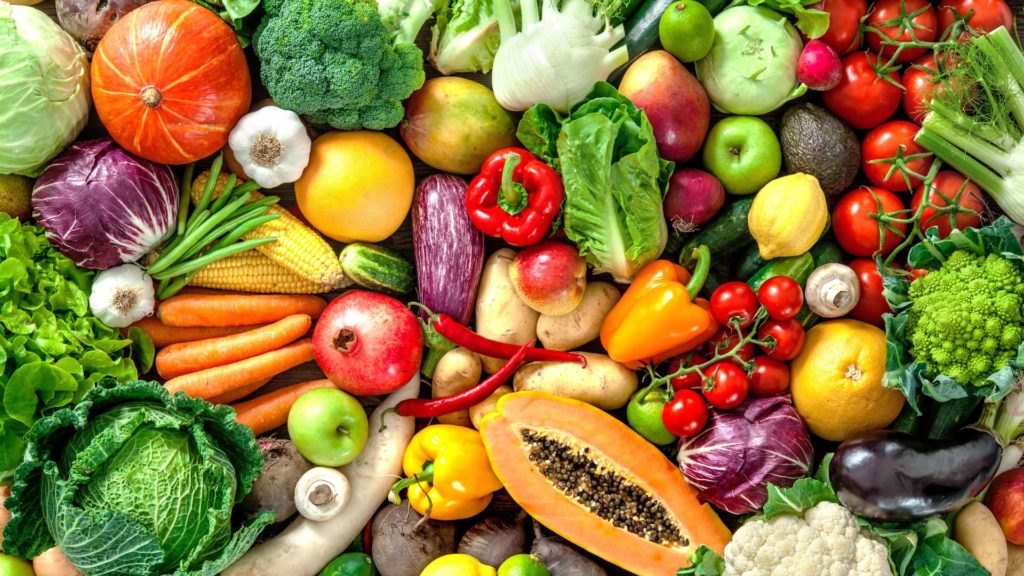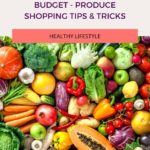It seems like every time I go to the grocery store these days, the price of produce has increased! No matter if you are trying to feed your family or just yourself, buying fresh organic produce has become a budget buster.
I want to help alleviate that pain and provide you with some simple tips and tricks to get the most bang for your buck!
1. Wholesale Shopping
One of the most effective ways to get a better deal on produce is to buy in bulk. Most people are aware of the big box stores like Costco, BJ’s and Sam’s Club, but did you know that most cities also have produce wholesalers as well as food salvage programs?
To locate these, simply search by using the name of your local city and “produce wholesalers” or “food salvage.” Call them and ask a few important questions…for example, what produce do they carry? – be specific about your needs. You will also want to ask if they adhere to USDA food and safety standards. Finally, you want to ask if they sell to the public, or do they require a business ID.
2. Co-Op Shopping
What if I cannot consume or store the large amount that bulk shopping yields?
In this case, the best option is to find a few people (friends and family) and go in on it together…co-op shopping.
Also look for local run food co-ops in your area. Search on the internet, ask in online groups. You will definitely find gems if you search. Food coops can be a way to build a coop community and also to share wholesale priced bulk foods.
3. Local Grocery Store
Another option, in the interest of saving time, but maybe not as much money, is to speak to the produce manager at your local grocery store. They can order cases of produce for you and give you the “case discount.” Many grocery stores can provide a 10-20% case discount.
4. Farm direct or CSA
Wherever you live, search for local farms in your area. Often, farms will sell cheaper than stores or wholesalers because you are cutting out the middleman. Signing up for a farm CSA sometimes is a great way to support your local farmers and to also get way cheaper food than at the grocery store or even your coop!
5. Food Storage
When buying large quantities, it is important to know how to store the various items. Having an extra freezer is a big help.
- ALL fruit can be frozen.
- Leafy greens should NEVER be frozen – you lose MOST of the nutritional value in greens by doing so.
Try to avoid storing fruits and vegetables together, as this will cause them to ripen faster and not last as long.
Pro Tip – I like to buy a case of avocado and take a few out to ripen on the counter while storing the rest in the fridge where they will stay firm for a long time. As I use them, I will remove more from the fridge to sit on the counter to ripen.
6. Extending the Life of Produce
Buy extra when food is on sale and freeze what you cannot use in the moment (if it is freezable, of course. This would not work with greens or raw potatoes, but would work with steamed potatoes). This way you stock up on sale items and can use them when you need them rather than needing to use them up all at once.
7. Grow Your Own — Sprouts!
Grow your own sprouts! This is a truly inexpensive way of obtaining greens. A bag of sprout seeds can cost you between $3 – $15 and will yield sprouts you can use in food for days. The trick is to come up with a system so that you have a sprout jar going every three days to have a constant yield of food. What you need:
- 32 ounce or 64 ounce mason jars.
- Sprouting lid (has holes in the lid)
- Sprouting seeds (choose from red clover, broccoli, alfalfa, peas etc.)
For more ideas on growing sprouts, check out my video on IGTV here.
8. If It’s Free, Count On Me
While nothing is free, you will always want to stay abreast of the sales. During the summer months I often notice that the berries will be “buy two, get one free”…jackpot, take advantage of every sale you can!
I know this style of shopping can seem overwhelming, but just like anything else it is merely a lifestyle change that, once made, will become second nature…and the best part is you will have extra funds to allocate to something else.
9. Bonus Tips
- When buying supplements, www.vimergy.com has excellent supplement sales. Stay on the lookout for those by signing up for their newsletter.
- Also sign up for newsletters of the other brands of supplements that are recommended by Anthony William, Medical Medium. For example, nature’s answer, pure encapsulations, gaia herbs, etc. This way, you will know about sales on their products and you can get deeper discounts than if you just purchased on Amazon.
- Websites like Vitacost or Lucky Vitamin are both discount supplement websites and when they go on sale or run sales on particular products, they often are the cheapest you can find anywhere. Definitely recommend signing up for their newsletters! These are most helpful to those who live in the USA.
- For people living outside the USA, iherb can be helpful with a few of the recommended supplements and while it’s not always the cheapest way to order (you can get charged customs in some countries) it sometimes is the most cost effective way to get your supplements. Usually their shipping is not that expensive and they are the only website I have found that caters to many different countries and have customs agreements in those countries to help keep costs down.
- Follow @2produceclub on Instagram to find a guide to produce wholesaler in your area.
- Save big on grocery deliveries by using www.misfitsmarket.com and www.imperfectproduce.com …organic and sustainably sourced groceries delivered to your door at up to 40% off grocery store prices!
PS – Have you seen my latest FREE resource?…the Flourish Kids Recipe eBook – this book is packed with incredible recipes that blew me away, I just had to share!!





